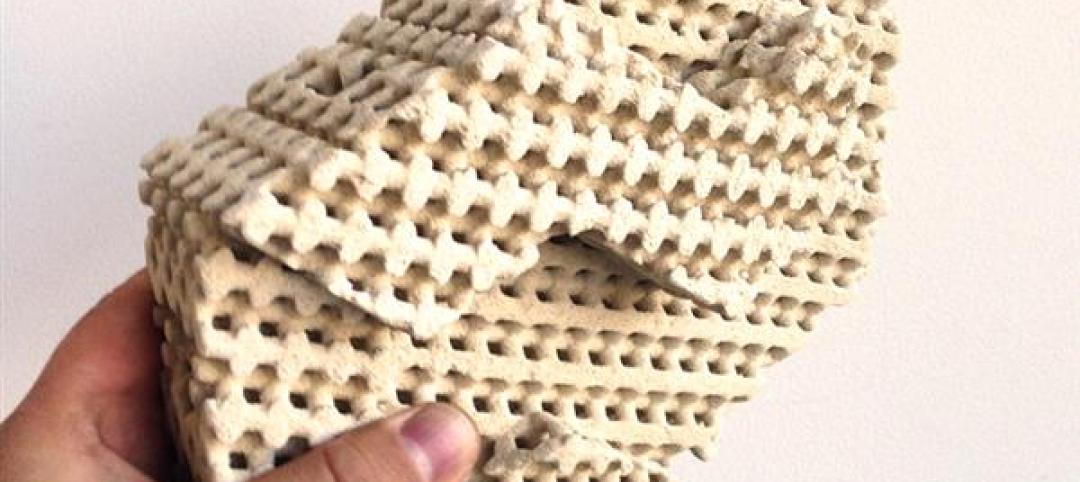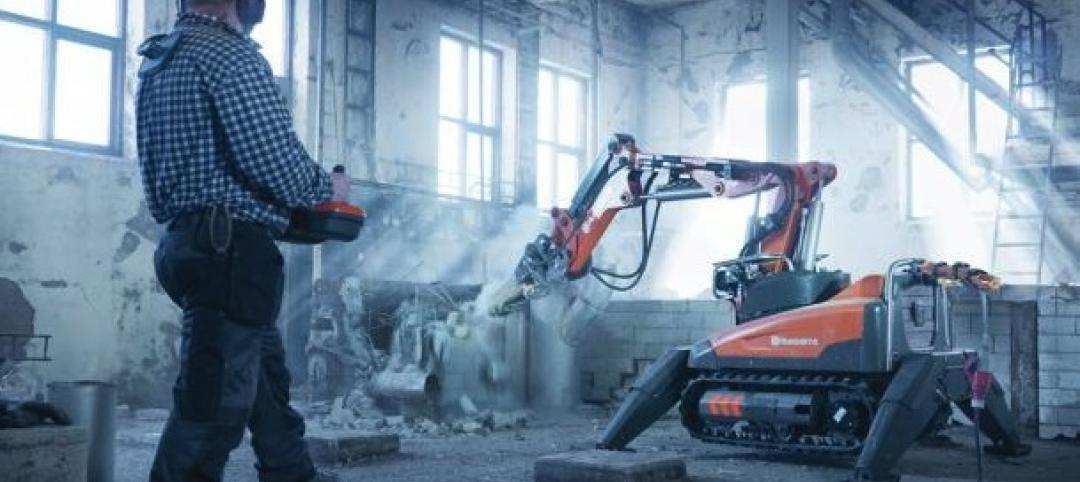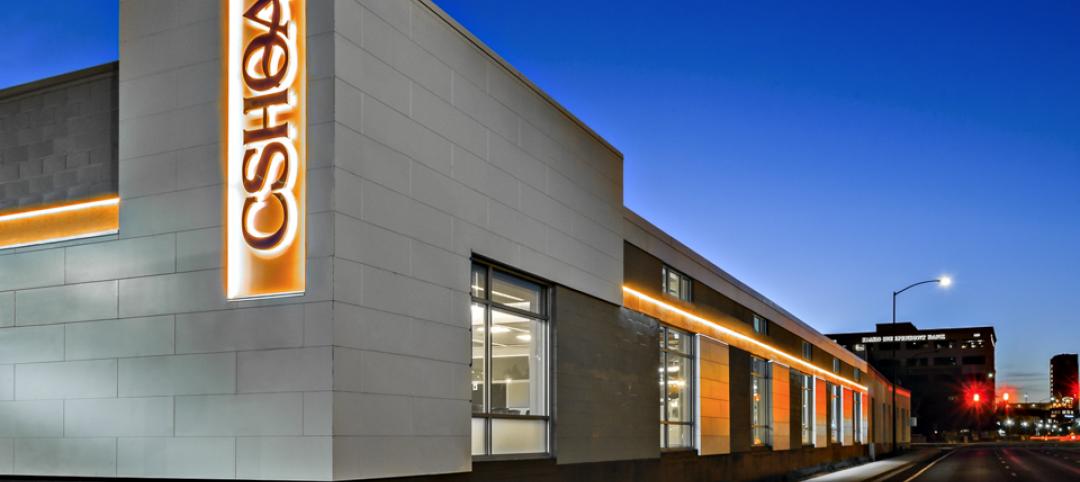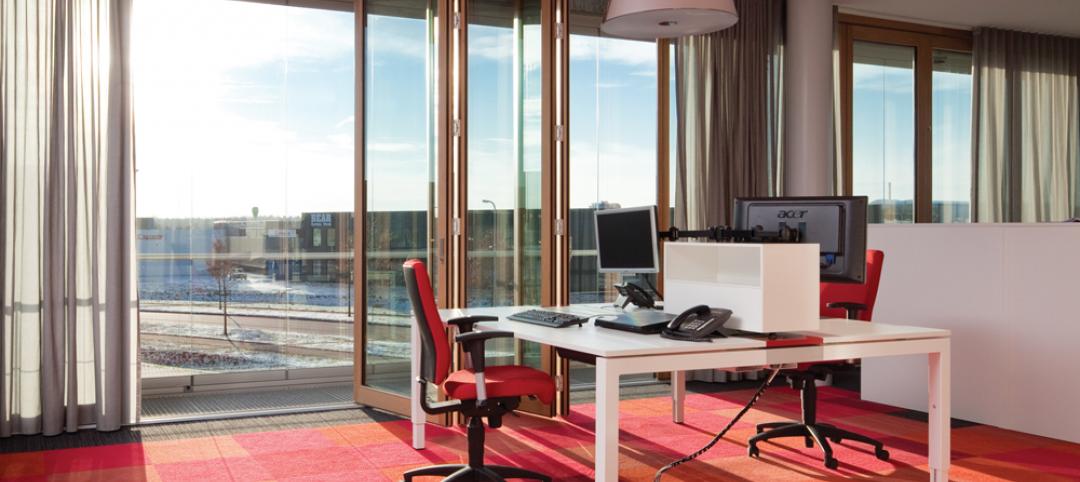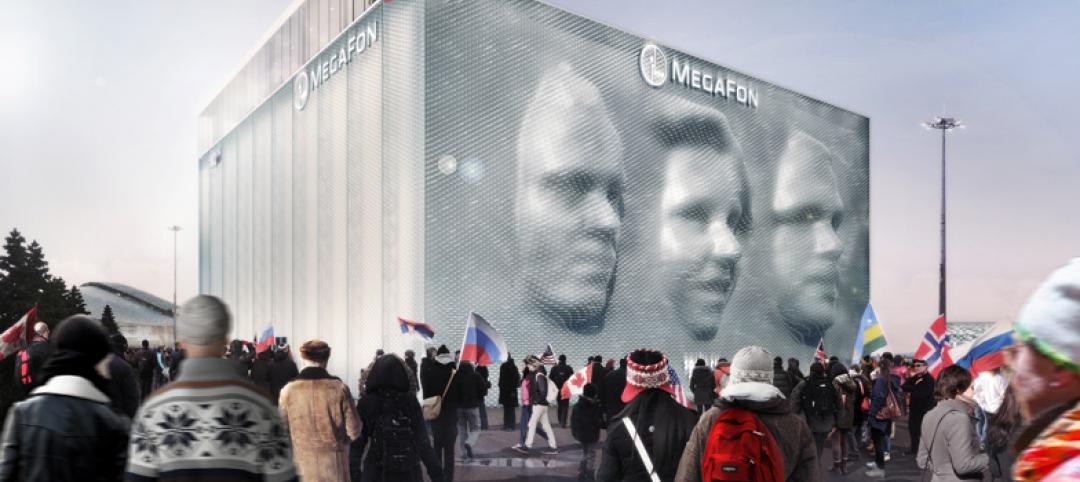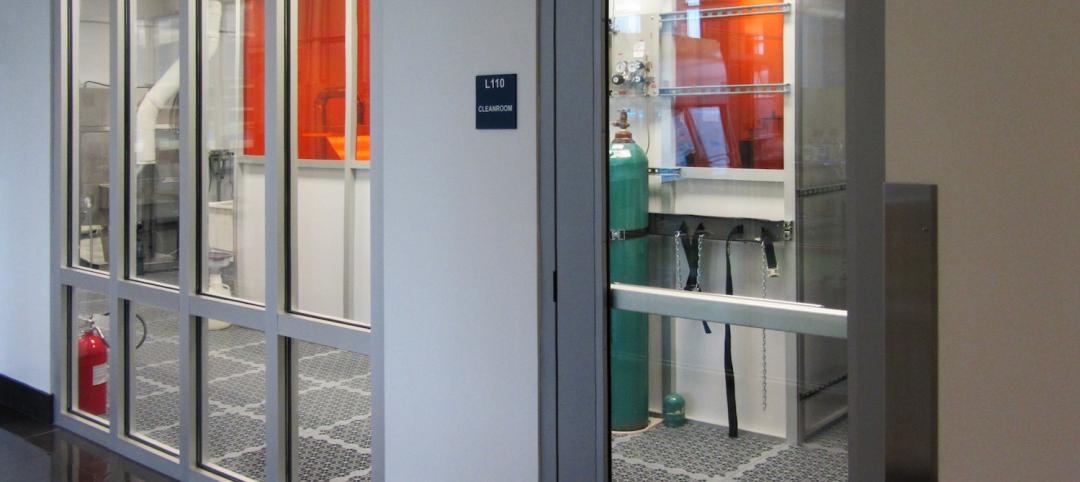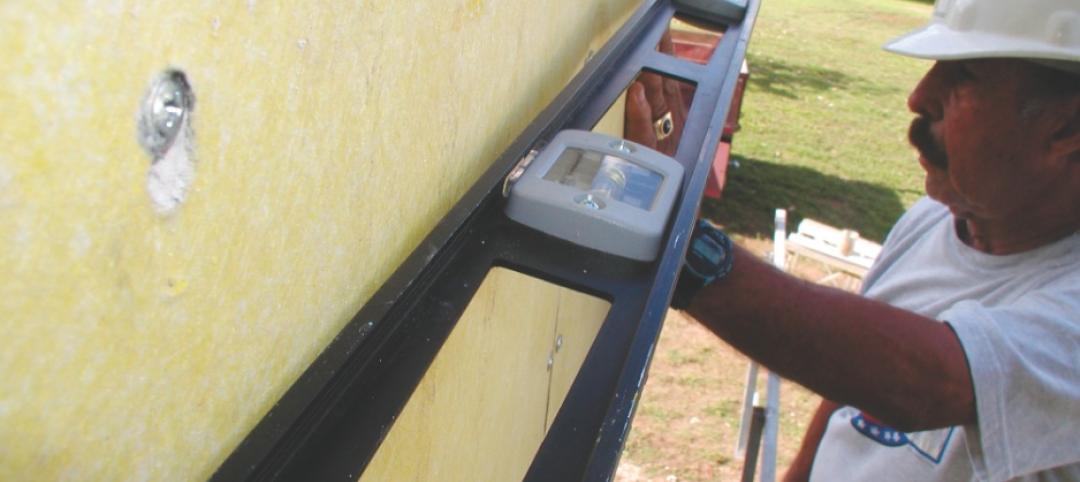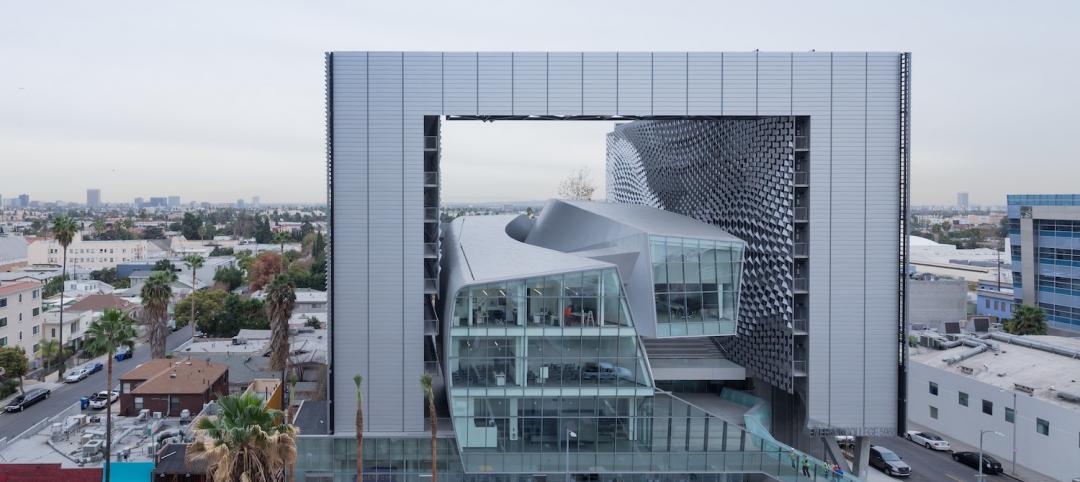The new Richland Two Institute of Innovation is a unique educational center supporting multigenerational learning. The facility is part of the Richland School District Two in Columbia, S.C., and is envisioned as a “fishbowl of learning” that weaves together spaces and programs for the school district as well as the community.
The Institute offers specialized classes for juniors and seniors from Richland Two’s five high schools, as well as provides comprehensive training and certification programs for adult learners throughout the area. The two-story, 245,000 sq. ft. building also offers community resources including a public library, public meeting rooms, shared auditorium, dining and conference areas as well as Richland Two’s District Office and training facilities.
The building can accommodate up to 800 people for workforce development classes and professional workshops. It was constructed as a design/build partnership between the architectural firm LS3P and M.B. Kahn Construction Co.
The highly contemporary design employs an inviting and colorful palette of materials including four different PAC-CLAD profiles in a variety of exterior and interior applications. The design team selected Petersen’s Reveal Panels as the primary exterior profile. The 22-gauge panels were finished in five complementary colors including Interstate Blue, Silver, Sierra Tan, Slate Gray and Almond.
The PAC-CLAD Reveal Panels were key to the overall design concept. “We wanted the building to have a high-tech, contemporary look but be economical,” said Mary Beth Branham, principal and LS3P’s Columbia office leader. “The district didn’t have a ton of money and needed to allocate available funds as smartly as possible. The PAC-CLAD panels were economical yet offered a nice blend of systems and profiles that could create the contemporary, industrial aesthetic we were going for. And the different colors of the metal panels allowed us to tie the exterior into the interior color scheme.”
The design team integrated the Reveal Panels on the front of the building with a simulated stone veneer, abundant glazing and four clerestories that introduce natural light and also serve as prominent design elements. The rear portion of the structure utilizes pre-cast concrete painted to match the differing colors of Petersen’s metal panels.
In addition to the PAC-CLAD Reveal Panels, three other Petersen profiles were blended into the design scheme. Approximately 10,000 sq. ft. of Tite-Loc Plus panels were used on four clerestory roof elements that help differentiate the main areas of the building. Also, 2,000 sq. ft. of Petersen’s Precision Series HWP panels provide accent areas under many of the windows on the rear portion of the building. PAC-CLAD Flush Panels were also used in various soffit applications.
Installation of all PAC-CLAD systems was done by Watts & Associates, Columbia. “This was a complex job,” said Scott Mathias, vice president and project manager. “LS3P was great to work with. The design team was very open to receiving ideas and suggestions for materials and products. We went to them with the Petersen option based on some of the challenges involved with using a single-skin product on the heights we were dealing with.”
The complexity of the installation was compounded by the use of four different types of metal panels in five different colors. “Determining the transitions between the colors required careful detailing where the various color panels tied in with each other. But again, that was mainly front-end stuff. We made samples to show everyone how we planned to do it and then everyone was on-board,” Mathias said. “Throughout the process, it was a total team effort. All of the players—including the school district—were totally committed to make sure we got it done and got it done right.”
Watts & Associates has a long relationship with Petersen. Scott Mathias was especially complimentary about the assistance he receives from the PAC-CLAD sales and technical support staff based out of Petersen’s Acworth, Ga., plant. “I can call those guys with any question on any job and they’ll find the answer for me. It doesn’t matter if a project is 180 feet in the air or on the ground, they’ll help out on the front end to make sure we’re covered on all aspects of the job. They’re good people with good products.”
Petersen manufactures PAC-CLAD metal cladding products in multiple gauges of steel and aluminum. PAC-CLAD products include standing-seam roof panels, hidden- and exposed-fastener wall panels, flush panels, soffit panels, perforated metal, fascia and coping systems, composite panels, column covers, coil and flat sheet. All are available in full 70% PVDF finish (Kynar) in 45 standard colors that include a 30-year finish warranty. Most colors meet LEED, Energy Star and Cool Roof Rating Council certification requirements. Founded in 1965, Petersen’s facilities are located in Illinois, Georgia, Texas, Maryland and Minnesota. For information on the complete line of Petersen metal products call 800-PAC-CLAD, visit pac-clad.com or write to info@pac-clad.com.
Related Stories
Brick and Masonry | Feb 5, 2015
3D-printed 'cool brick' may provide cooling solution for arid locations
Cool Brick is made of porous ceramic bricks set in mortar. The bricks absorb water, which cools the air as it passes through the unit.
| Dec 28, 2014
Robots, drones, and printed buildings: The promise of automated construction
Building Teams across the globe are employing advanced robotics to simplify what is inherently a complex, messy process—construction.
Sponsored | | Sep 25, 2014
Architects transform warehouse into office space while preserving its historic nature
When it came time for CSHQA, an award-winning, full-service architecture and engineering firm, to move office locations, they didn’t need to look far. The 20,000-square-foot warehouse was not only a mere three blocks away, its renovation would be an ideal demonstration piece to show existing and potential clients.
| Sep 7, 2014
Building the cladding palette: panels, rainscreens, and veneers [AIA course]
When it comes to cost, performance, and aesthetics—not to mention maintenance and long-term resilience—the evaluation of cladding materials and façade systems is more complex than ever. This course is worth 1.0 AIA CES HSW learning units.
| Jul 1, 2014
Sochi's 'kinetic façade' may steal the show at the Winter Olympics
The temporary pavilion for Russian telecom operator MegaFon will be wrapped with a massive digital "pin screen" that will morph into the shape of any face.
| May 27, 2014
Fire Rated Glass contributes to open lab environment at JSNN
Openness and transparency were high priorities in the design of the Joint School of Nanoscience & Nanoengineering within the Gateway University Research Park in Greensboro, N.C. Because the facility’s nanobioelectronics clean room houses potentially explosive materials, it needed to be able to contain flames, heat, and smoke in the event of a fire. SPONSORED CONTENT
| Mar 26, 2014
Zaha Hadid's glimmering 'cultural hub of Seoul' opens with fashion, flair [slideshow]
The new space, the Dongdaemun Design Plaza, is a blend of park and cultural spaces meant for the public to enjoy.
| Mar 20, 2014
Common EIFS failures, and how to prevent them
Poor workmanship, impact damage, building movement, and incompatible or unsound substrate are among the major culprits of EIFS problems.
| Mar 7, 2014
Thom Mayne's high-tech Emerson College LA campus opens in Hollywood [slideshow]
The $85 million, 10-story vertical campus takes the shape of a massive, shimmering aircraft hangar, housing a sculptural, glass-and-aluminum base building.
| Mar 4, 2014
CENTRIA Demonstrates Commitment to Contractors
New Brochure Highlights Architectural Metal Panel Manufacturer’s Products, Expertise and Experience


